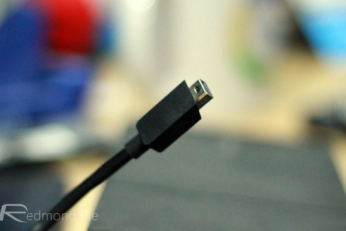Android, being open source and all, is a prime target for makers of malicious software, and even though Google's ubiquitous mobile platform has become more and more secure through the generations, it still seems to encounter unwanted threats more frequently than iOS or Windows Phone. A new strain spotted by Russian security experts threatens more than 500,000 Android users by taking advantage of the way some banks process information through SMS, and with the ability to assume almost full control of an afflicted device, it's actually rather dangerous.
The Internet is not a safe haven as it once was, with many online attacks happening on an almost daily basis. If that thought brought you to the edge of your seat, then today’s report might leave you with your jaw hitting the floor.
As if the reports of NSA spying over all your mobile phone and Internet activity weren’t enough to make customers all the more paranoid, a recent major security flaw discovered in Android and BlackBerry devices (and some iPhones as well) can basically put millions and millions of customers worldwide at the risk. The vulnerability can basically allow an attacker to assume the highest level of control of an affected cellular device and enable theft of personal data and more. Details past the break.
The digital world is constantly under threat from security breaches, but often an attack prevails over even the best defenses. Case in point, a new attack to be outlined at the annual Black Hat security conference which, among the usual spate of interesting tricks, touts itself as one of the most significant threats ever seen.
Apple prides itself on the security of its iOS mobile operating system, and aside from the occasional hiccup that besets all software at one point or another, this tends to be the case. However, one jailbreak expert has done some serious digging into the guts of iOS and discovered that while the software is pretty safe from the continued threat of hacks and attacks from malware makers, there are certain loopholes within the iOS make-up that make it potentially easy for Apple and government agencies to covertly get hold of your personal data.
Following on from the news that the TSA was banning air passengers from boarding flights with gadgets that were powered down or could not be turned on, the UK's Department for Transport has followed suit, with certain flights and routes set to enforce similar action on gadgets that appear not to be in use.
Android's open-source nature is a bit of a double-edged sword in many respects, for although it's customizable to the nth degree, it's also much more susceptible to malicious intrusion when compared with the likes of Apple's iOS. On a regular basis, we hear of new, cunning schemes designed to attack smartphones and tablets running on Google's flagship mobile OS, and today, we've encountered a particularly alarming security hole that could potentially help a hacker relieve you of vast mounds of cash.
If you've been on an airplane in the last ten years, then the chances are you're already well aware of some of the rather overzealous restrictions that are being enforced upon air travellers. Mothers forced to prove that baby milk is indeed just that by drinking it is a story we've all heard before, but now it seems that the US Transportation Security Administration isn't content with just making sure liquids are as they appear, anymore.
Security firm Lookout has been among the foremost in enhancing mobile security to the general consumer, with its apps highly regarded by those who use them. Given how frequently mobile devices are targeted by unwanted intruders nowadays, the company has added a new Theft Alerts system, and whilst similar apps offer features to help users recover a lost or stolen device, Lookout's new implementation is both pro-active and effective in how it goes about its business.
Apple prides itself upon its diligent efforts to maintain software that is secure. iOS is generally regarded as the most robust in defense against malicious intrusion and attack, but like any piece of software, it is far from perfect. From time to time, Apple's mobile OS makes the headlines for the wrong reasons, and unfortunately, a claim by the Cupertino that email attachments are encrypted is refutable thanks to a glaring bug that has been lingering in the software for months.






